HGF
Welcome Message
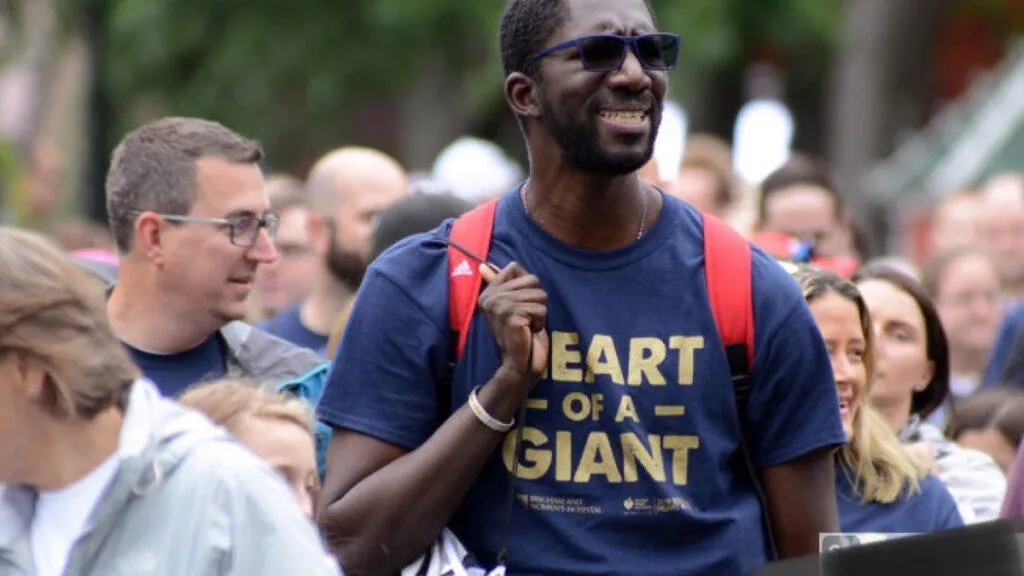
On the behalf of our team and myself, welcome to our Website.
Heart of a Giant Foundation (HGF) was born from my personal journey and steadfast commitment to advocacy, resilience, and positive change. Throughout my journey to receiving a heart transplant, I gained a unique insight into the challenges and intricacies of our healthcare system. This life-altering experience ignited my passion to support others navigating similar paths, a journey I understand intimately.

Meet the Founder
Meet Somaneh 'Bouba'!
Business Professional, Entrepreneur, and Heart Health Advocate
Somaneh "Bouba" Diemé is an accomplished engineer, passionate entrepreneur, and dedicated community leader committed to empowering patients, caregivers, and the broader community in heart health. As a long-time heart patient turned community health innovator, Bouba leverages his unique experiences and skills to foster connection, learning, and growth among patients and healthcare professionals.
Personal Journey and Mission:
Bouba's journey began over a decade ago when he was diagnosed with a congenital heart condition, leading to a prolonged battle with chronic heart disease and, ultimately, a life-saving heart transplant. This personal experience ignited his commitment to raising awareness, providing support, and driving positive change for those affected by heart conditions, particularly in at-risk communities.
Heart of a Giant Foundation:
As the founder of the Heart of a Giant Foundation (HGF), Bouba has led the organization to achieve significant milestones in empowering individuals at high risk of heart conditions. The foundation's programs focus on education, support, and direct intervention, helping individuals achieve self-sufficiency and improved quality of life.
Global Impact and Leadership:
Bouba is renowned for his advocacy and leadership in healthcare innovation, focusing on preventing heart diseases and improving patient outcomes. His mission to enhance local and global health is fueled by his social connections, professional knowledge, and personal experience with heart failure. By volunteering within his community and bringing a unique perspective from living in diverse parts of the world, including areas with limited resources, Bouba continues to make significant strides in raising awareness and driving positive change.
Community and Beyond:
Based in Boston, MA, with his family, Bouba's impact extends beyond his local community to his home countries of Mali and Senegal. His dedication to fostering connections and improving healthcare initiatives has made him a sought-after speaker and collaborator.
Contact Information:
For speaking engagements, collaborations, or partnership opportunities, please feel free to reach out to Bouba. Together, we can make a difference in the lives of those affected by heart conditions. Contact details can be provided upon request.
Key Achievements and Focus Areas:
- Education: Providing comprehensive heart health education to at-risk communities.
- Support: Offering resources and support networks for patients and caregivers.
- Direct Intervention: Implementing programs that directly improve the quality of life for individuals with heart conditions.
- Advocacy: Raising awareness and driving changes to enhance heart health outcomes globally.
Bouba's unwavering commitment and innovative approach inspire and empower individuals and communities worldwide.
Bouba’s Blog
Welcome to My Blog!
Welcome to My Heart Health Journey Blog
Hello, I'm Somaneh "Bouba" Diemé, a passionate advocate for heart health and the founder of the Heart of a Giant Foundation. I'm thrilled to have you join me here as I share my personal journey with heart failure and life as a heart transplant recipient.
From 2012 to 2022, I survived congestive heart failure caused by a congenital heart defect, leading to open-heart surgery to implant an LVAD (Left Ventricular Assist Device) pump. After a six-year wait, I finally received a heart transplant in late 2022. This journey has not only shaped my life but also fueled my commitment to improving patient outcomes and empowering individuals to lead healthier lives.
Through this blog, I aim to:
-Share my unfiltered experiences as a heart failure survivor and heart transplant recipient.
-Provide insights into the patient's perspective, making it more relevant to the improvement of therapies and healthcare systems.
-Empower and educate others about heart health, advocacy, and the power of community support.
-Inspire hope and resilience in those facing similar challenges.
Join the Journey.I invite you to be part of this journey, engaging with my stories, learning from my experiences, and contributing to the conversation. Together, we can drive positive change in heart health outcomes and improve the lives of patients worldwide.
Thank you for your support and for being part of this community!
New to the blog? Start by exploring some of my key posts and don't forget to subscribe to stay updated on new content.
Disclaimer: The information shared on this blog is based on my personal experiences and is not intended to replace professional medical advice. Always consult with a healthcare provider for any medical issues.
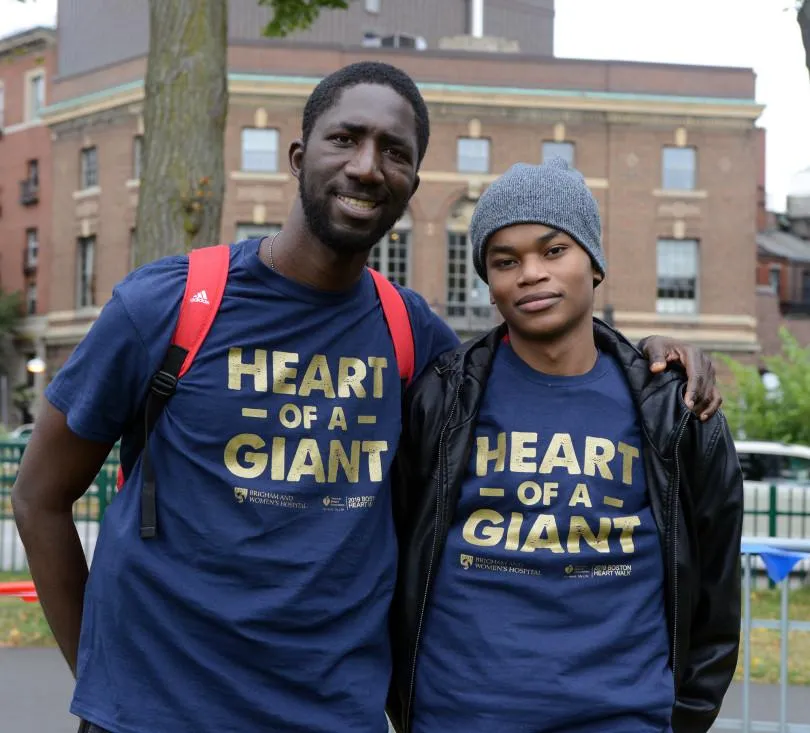
Latest Blogs
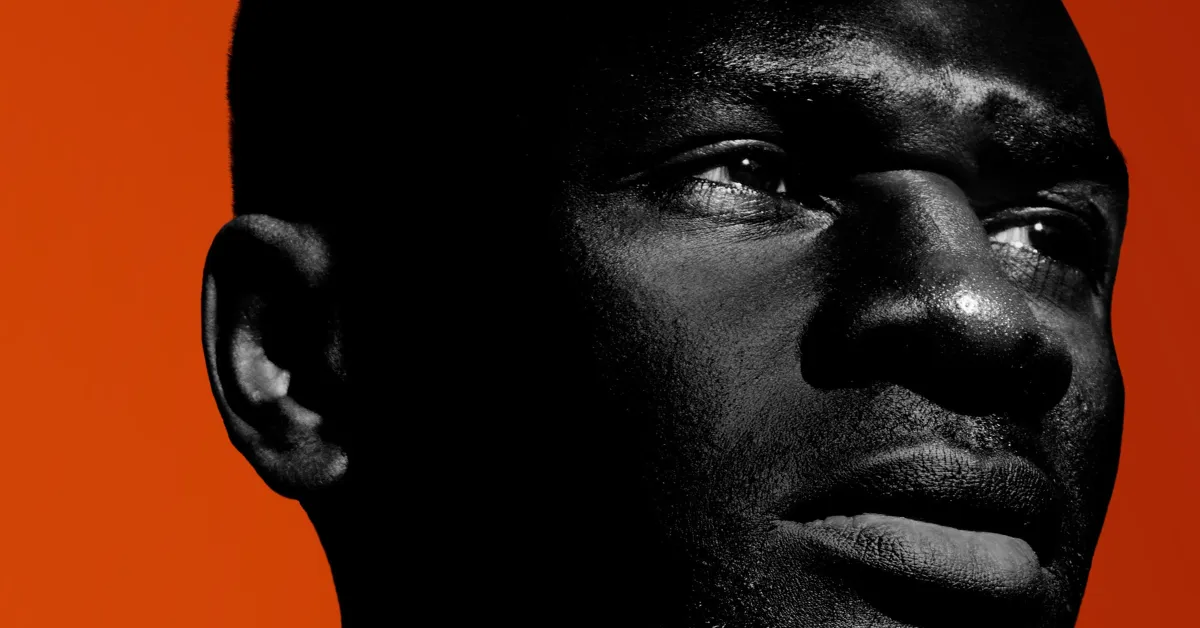
TACKLING HEART DISEASE DISPARITIES THIS JUNETEENTH: PRIORITIZING HEART HEALTH AMONG BLACK MEN
As we celebrate Juneteenth and commemorate the road to freedom this men’s health month, it is essential to recognize and address the specific challenges that Black men face regarding heart health. Heart disease remains a leading cause of death among Black men, and understanding and overcoming these challenges is crucial for promoting a healthier future.
Unique Challenges to Men’s Health in General
In the United States, men encounter various impediments to good health. Firstly, men are said to be less likely than women to seek preventive healthcare services such as routine check-ups, screenings, and vaccinations. This reluctance can lead to delayed diagnosis and treatment of health conditions, which can result in more serious health problems developing later on.
Additionally, men may tend to engage in unhealthy behaviors like smoking, excessive alcohol consumption, poor diet, and lack of exercise more often than women. These behaviors increase the risk of chronic health conditions such as heart disease, cancer, and diabetes. Moreover, certain jobs and industries (e.g., construction and mining) can expose men to workplace hazards that may affect their health, such as exposure to harmful substances and physical injuries.
From a mental health perspective, a culture that rewards stoicism coupled with the stigma still associated with mental illness also prevents men from seeking help for psychological issues like PTSD, anxiety, and depression, leading to untreated conditions that can negatively impact overall health and well-being. On top of all this, men may have fewer social connections or outlets for processing emotions than women, leading to isolation and loneliness, negatively affecting mental health and well-being.


Photo by Alex Green
Additional Challenges for Black Men and Heart Health
Black men in particular, face a specific set of challenges regarding heart health. Certain genetic variations increase the risk of heart disease, and it has been shown that black people and people of African descent may have a higher prevalence of genetic variations associated with salt sensitivity and insulin resistance, both of which are linked to hypertension and diabetes.
In addition, socioeconomic disparities unique to the Black community, such as lower income levels, limited access to healthy food options, and higher stress levels, contribute to higher rates of hypertension and diabetes. These factors may also lead to unhealthy lifestyle choices and increased disease risk.
Cultural factors also play a role in heart health, as dietary preferences, cultural norms, and health beliefs influence risk factors. For example, traditional diets high in salt or fried foods may contribute to hypertension risk, while cultural attitudes towards healthcare can affect disease management.
Healthcare disparities further impact black men, as they may face limited access to quality healthcare, racial bias in healthcare delivery, and lower rates of timely and appropriate medical care. These disparities can contribute to undiagnosed or poorly managed hypertension and diabetes. Moreover, environmental factors such as neighborhood characteristics, exposure to pollutants, and limited access to recreational spaces, also impact health outcomes and contribute to increased rates of hypertension, diabetes, and heart disease.

Solutions for Prioritizing Heart Health within the Black Community
To prioritize heart health within the Black community, there’s a lot we can do. Here are some of the ways we can all be part of the solution.
Raise Awareness: Spread awareness about the disproportionate impact of heart disease on Black men. Encourage open conversations about heart health, risk factors, and preventive measures within family, community, and social networks.
Address Healthcare Disparities: Advocate for equitable healthcare resources, including access to affordable primary care services like regular check-ups and screenings and affordable medications. It’s important that we work towards eliminating healthcare disparities that hinder early detection and management of heart disease.
Know Your Family History: Understand your family’s medical history and share this information with healthcare providers. This helps develop personalized prevention and management strategies.
Prioritize Regular Check-ups: Schedule regular visits with healthcare providers to monitor your overall health and assess cardiovascular risk factors.
Adopt a Heart-Healthy Lifestyle: Make conscious choices to prioritize heart-healthy habits such as regular physical activity and a balanced diet rich in fruits, vegetables, whole grains, lean proteins, and healthy fats. Avoid excessive sodium, sugary beverages, and processed foods.

Photo by Monstera
Manage Stress: Find healthy ways to manage stress, such as exercise, meditation, mindfulness, or engaging in relaxing hobbies and activities.
Build a Support Network: Participate in community programs, support groups, or initiatives focused on health and wellness. Share experiences, challenges, and successes to inspire and motivate each other.
Celebrate Cultural Foods with a Healthy Twist: Embrace traditional cultural foods while making healthier choices. Explore recipes and cooking techniques that reduce sodium, unhealthy fats, and added sugars while preserving flavor and cultural significance.
Seek Mentors and Role Models: Encourage mentorship and positive role models within the community. Share success stories and promote positive examples of healthy living.
Advocate for Policy Changes: Raise your voice and advocate for policy changes that address social determinants of health and promote equitable access to resources supporting heart health.
By addressing the unique challenges faced by Black men and implementing these solutions, we can work towards reducing the impact of heart disease within the community. Juneteenth serves as a reminder of resilience, progress, and the collective effort required to overcome human rights disparities and prioritize health for a brighter future. Together, we can make a difference.
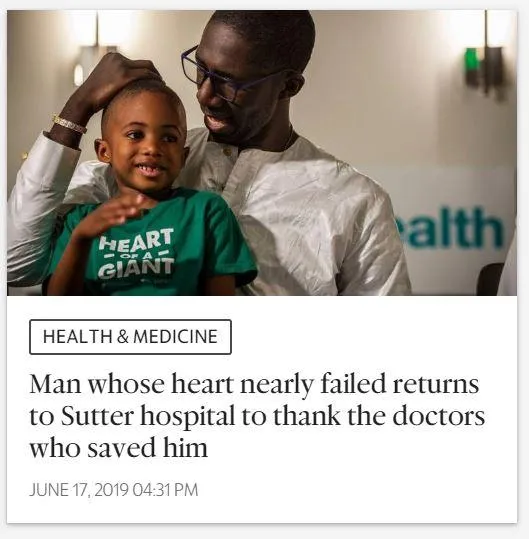
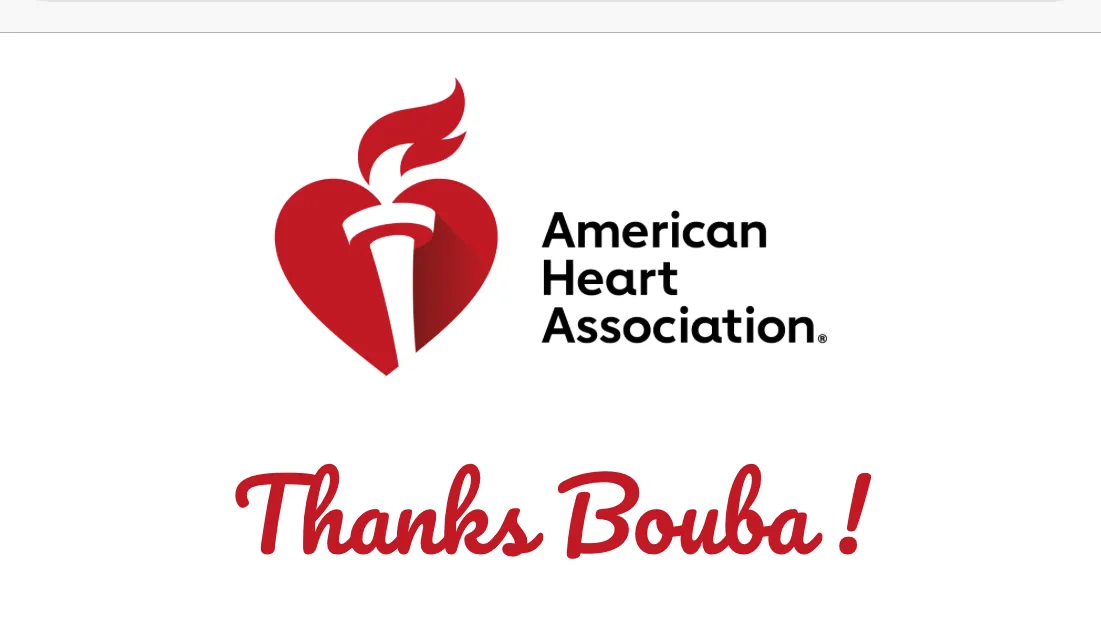
News & Media
Sign-up to stay updated with the latest news, interviews, and media appearances of Somaneh “Bouba” Diemé.
Discover how Bouba makes waves in healthcare advocacy, patient support, and heart health education. Follow his journey as he shares insights, success stories, and ongoing efforts to drive positive change in healthcare systems worldwide.
Latest News

TACKLING HEART DISEASE DISPARITIES THIS JUNETEENTH: PRIORITIZING HEART HEALTH AMONG BLACK MEN
As we celebrate Juneteenth and commemorate the road to freedom this men’s health month, it is essential to recognize and address the specific challenges that Black men face regarding heart health. Heart disease remains a leading cause of death among Black men, and understanding and overcoming these challenges is crucial for promoting a healthier future.
Unique Challenges to Men’s Health in General
In the United States, men encounter various impediments to good health. Firstly, men are said to be less likely than women to seek preventive healthcare services such as routine check-ups, screenings, and vaccinations. This reluctance can lead to delayed diagnosis and treatment of health conditions, which can result in more serious health problems developing later on.
Additionally, men may tend to engage in unhealthy behaviors like smoking, excessive alcohol consumption, poor diet, and lack of exercise more often than women. These behaviors increase the risk of chronic health conditions such as heart disease, cancer, and diabetes. Moreover, certain jobs and industries (e.g., construction and mining) can expose men to workplace hazards that may affect their health, such as exposure to harmful substances and physical injuries.
From a mental health perspective, a culture that rewards stoicism coupled with the stigma still associated with mental illness also prevents men from seeking help for psychological issues like PTSD, anxiety, and depression, leading to untreated conditions that can negatively impact overall health and well-being. On top of all this, men may have fewer social connections or outlets for processing emotions than women, leading to isolation and loneliness, negatively affecting mental health and well-being.


Photo by Alex Green
Additional Challenges for Black Men and Heart Health
Black men in particular, face a specific set of challenges regarding heart health. Certain genetic variations increase the risk of heart disease, and it has been shown that black people and people of African descent may have a higher prevalence of genetic variations associated with salt sensitivity and insulin resistance, both of which are linked to hypertension and diabetes.
In addition, socioeconomic disparities unique to the Black community, such as lower income levels, limited access to healthy food options, and higher stress levels, contribute to higher rates of hypertension and diabetes. These factors may also lead to unhealthy lifestyle choices and increased disease risk.
Cultural factors also play a role in heart health, as dietary preferences, cultural norms, and health beliefs influence risk factors. For example, traditional diets high in salt or fried foods may contribute to hypertension risk, while cultural attitudes towards healthcare can affect disease management.
Healthcare disparities further impact black men, as they may face limited access to quality healthcare, racial bias in healthcare delivery, and lower rates of timely and appropriate medical care. These disparities can contribute to undiagnosed or poorly managed hypertension and diabetes. Moreover, environmental factors such as neighborhood characteristics, exposure to pollutants, and limited access to recreational spaces, also impact health outcomes and contribute to increased rates of hypertension, diabetes, and heart disease.

Solutions for Prioritizing Heart Health within the Black Community
To prioritize heart health within the Black community, there’s a lot we can do. Here are some of the ways we can all be part of the solution.
Raise Awareness: Spread awareness about the disproportionate impact of heart disease on Black men. Encourage open conversations about heart health, risk factors, and preventive measures within family, community, and social networks.
Address Healthcare Disparities: Advocate for equitable healthcare resources, including access to affordable primary care services like regular check-ups and screenings and affordable medications. It’s important that we work towards eliminating healthcare disparities that hinder early detection and management of heart disease.
Know Your Family History: Understand your family’s medical history and share this information with healthcare providers. This helps develop personalized prevention and management strategies.
Prioritize Regular Check-ups: Schedule regular visits with healthcare providers to monitor your overall health and assess cardiovascular risk factors.
Adopt a Heart-Healthy Lifestyle: Make conscious choices to prioritize heart-healthy habits such as regular physical activity and a balanced diet rich in fruits, vegetables, whole grains, lean proteins, and healthy fats. Avoid excessive sodium, sugary beverages, and processed foods.

Photo by Monstera
Manage Stress: Find healthy ways to manage stress, such as exercise, meditation, mindfulness, or engaging in relaxing hobbies and activities.
Build a Support Network: Participate in community programs, support groups, or initiatives focused on health and wellness. Share experiences, challenges, and successes to inspire and motivate each other.
Celebrate Cultural Foods with a Healthy Twist: Embrace traditional cultural foods while making healthier choices. Explore recipes and cooking techniques that reduce sodium, unhealthy fats, and added sugars while preserving flavor and cultural significance.
Seek Mentors and Role Models: Encourage mentorship and positive role models within the community. Share success stories and promote positive examples of healthy living.
Advocate for Policy Changes: Raise your voice and advocate for policy changes that address social determinants of health and promote equitable access to resources supporting heart health.
By addressing the unique challenges faced by Black men and implementing these solutions, we can work towards reducing the impact of heart disease within the community. Juneteenth serves as a reminder of resilience, progress, and the collective effort required to overcome human rights disparities and prioritize health for a brighter future. Together, we can make a difference.
The Heart of a Giant Foundation, Inc. is a 501(c)(3) nonprofit organization, EIN 84-2900386. Donations are tax-deductible.

